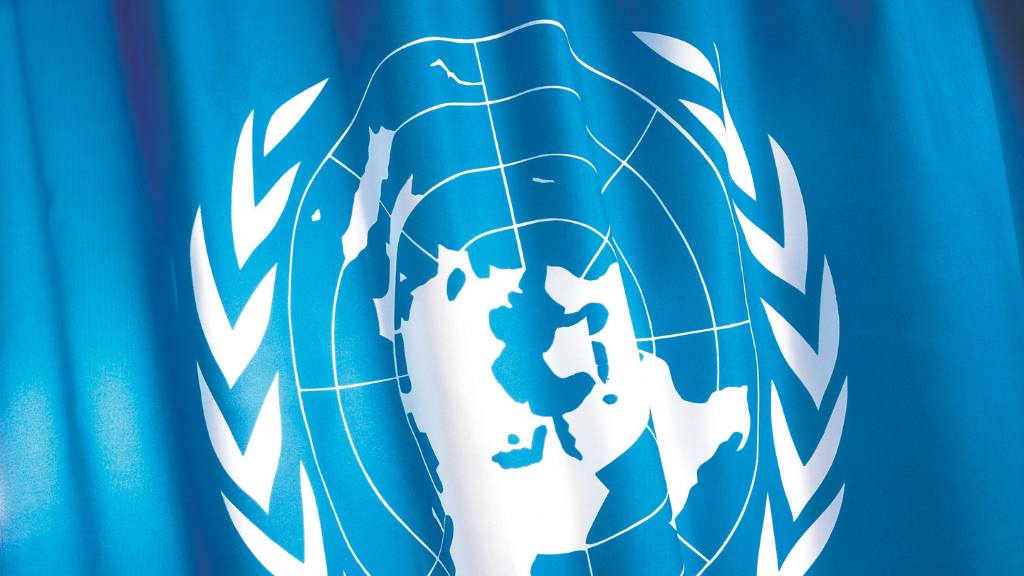Time to Reform the United Nations
If you haven’t experienced the epic congestion of New York during United Nations week, count yourself lucky. If you have, you know the inverse correlation between the bedlam of the General Assembly’s annual meeting and the march of peace among men. Zoom into any traffic jam across the tristate area and you’ll find men and women cursing Franklin D. Roosevelt in every tongue.
Understood in biblical terms, the UN’s East River complex might be seen as a House of Noah where the patriarch’s long-scattered descendants meet to rediscover their fraternal bonds. But if you witnessed the UN’s record over the past year, you know that mankind’s premier peacemaking body is much closer to a Tower of Babel—and with the world in disarray, you might wonder if it should be disbanded all the same.
Anyone who doubts such a sweeping suggestion needn’t look any further than the UN’s record on Israel since 7 October 2023.
In just twelve months, we saw shocking revelations about Hamas’s penetration of the UN Relief and Works Agency (UNRWA) in the Gaza Strip; we learned of a Hamas takeover of the UNRWA branch in Lebanon; we watched the Security Council make minimal interventions on behalf of Israeli hostages while making outsized demands to protect Palestinians (and failing to act against Iranian aggression from Yemen, Syria, and elsewhere); we read the International Court of Justice’s unconscionable advisory opinion with its demand that Israel withdraw immediately from Gaza, the West Bank, and East Jerusalem, including the Old City; we heard the Human Rights Council condemn Israel’s highly discriminate ‘pager-attack’ on Hezbollah terrorists; and we listened to Iranian President Masoud Pezeshkian address the General Assembly and say— unironically and with a straight face— that Iran hopes to “play an effective and constructive role in the evolving global order.”
More glaring than all this, however, is the UN’s total failure to prevent the war now raging between Israel and Iran’s proxies in Lebanon. After the last Hezbollah-instigated war in 2006, the Security Council issued Resolution 1701 calling for the total disarmament of the Iranian militia; yet neither the Security Council, its UNIFIL mission to Lebanon, nor the Lebanese government have been willing to enforce the resolution, giving the Islamic Republic of Iran two decades to rebuild its terrorist army on Israel’s northern border.
Israelis have endured daily attacks from Hezbollah for a year while fending off Hamas in the south, with nary a peep from the Security Council. Now that the IDF is striking back, however, UN Secretary-General Antonio Gutierres is suddenly crying that “Hell is breaking loose in Lebanon” and urging “leaders to resume a meaningful dialogue.” (His one-sided screeds just got him banned from Israel.) Over at the Middle East Forum, Michael Rubin retorts, “If the UN and Lebanon will not dismantle Hezbollah’s network of arms, then Israel will have no choice but to do the job.”
With its fixation on the Jewish state, perhaps the UN should be forgiven for its failure to stop conflicts in Ukraine, Sudan, Ethiopia, and Haiti; but those conflicts, and others, stand to widen over the coming year. The question is why we continue to tolerate this feckless institution.
These days, the UN is focused on a Very Big Thing called the 2030 Agenda for Sustainable Development, a ‘supremely ambitious and transformational vision’ for humanity adopted by member states in 2015. This Agenda lays out 17 goals, each with its own secondary goals, that include everything from eradicating hunger and poverty to promoting gender equality and clean energy. In short, it’s a blueprint for better global governance.
Described on the UN website as a “once-in-a-generation opportunity to reimagine the multilateral system and steer humanity on a new course,” the Summit produced the ‘Pact of the Future’, adopted by acclamation on 22 September, which obligates member states to redouble their commitment to the 2030 Agenda. In 2023, UN economists estimated that reaching the Agenda’s development targets would require between $5.4 and $6.4 trillion per year until 2030. This redistribution of wealth, combined with other obligations, exacts a heavy toll in the name of a ‘brighter future for humanity.’
You don’t have to be weird to see the UN’s more muscular mandate as the emerging tyranny it is.
At least that’s the view of Argentina’s new president Javier Milei, who came to this year’s UN General Assembly to deliver the jeremiad we’ve been waiting for.
Self-described ‘libertarian-liberal economist’ Javier Milei may have been the least likely person to become president of Argentina. His tastes and personality are rather eccentric and his politics conservative by Latin American standards. (Curiously, Milei, a Catholic, feels a strong pull towards Judaism and the State of Israel which he doesn’t mind sharing.)
Elected to rescue Argentina from a century of failed economic policies, Milei channels the same disruptive antiwokeism of Donald Trump, Viktor Orban, and El Salvador’s Nayib Bukele—but the task before him is daunting.
Taking the rostrum, he made sure to give credit where credit was due, lauding the UN for helping to repair the world after 1945 by turning swords into ploughshares, etc. But he spent the rest of his 14 minutes tearing into the international body for straying from its founding purpose and leading humanity down the wrong path.
The problem, Milei explained, is corruption—not in the technical sense but the biblical one. Like most “bureaucratic structures that we men create,” the UN slowly mutated from an organisation “intended essentially as a shield to protect the Kingdom of Man…into a multi-tentacled leviathan, which seeks to decide not only what each nation-state should do, but also how all the citizens of the world should live.” The 2030 Agenda is the latest phase of this mutation, a “supranational government programme, socialist in nature, which seeks to solve the problems of modernity with solutions that violate the sovereignty of nationstates and violate people’s right to life, liberty and property.”
Milei knows socialism all too well and wants no part of it. “Collectivism and moral posturing of the woke agenda have collided with reality and no longer have credible solutions to offer to the world’s real problems,” he said. History teaches that “the only way to guarantee prosperity is by limiting the power of the monarch, guaranteeing equality before the law and defending the right to life, liberty and property of individuals.” That’s the kind of prosperity Argentinians elected him to restore.
Milei ended his speech by announcing Argentina’s dissent from the 2030 Agenda and his own plans to undo it. “From this day on, know that the Argentine Republic will abandon the position of historical neutrality that characterised us and will be at the forefront of the struggle in defence of freedom,” he said. He then called “all the nations of the free world to join us, not only in dissenting from this pact but also in the creation of a new agenda for this noble institution: the agenda of freedom.”
Calls for reforming the UN are legion. While most foreign policy wonks believe the UN remains an indispensable platform for international dialogue, many have conceded its dysfunction and offered various ideas for fixing it. The problem isn’t a lack of ideas but a lack of will.
One thing is for sure: Left unopposed, the dragon will grow. And while Milei is no St. George, his cause is just and his goals are achievable. The UN’s mandate must be narrowed—a lot. Its funding must be slashed—a lot (especially for fruitless peacekeeping missions like UNIFIL). Redundant tentacles must be lopped off, and what’s left must be consolidated around a more realistic—and less invasive—agenda. It’s a big job, but it can be done.
Based in New York, Robert Nicholson is a lawyer and social entrepreneur. He is a member of the Advisory Board of thinc. This is an abbreviated version of an article published in ‘Providence’ on 10 October 2024.
The Hague Initiative for International Cooperation (thinc.) is a global network of lawyers promoting the fair use of international law to advance global peace and security. Christians for Israel is a partner of thinc.






